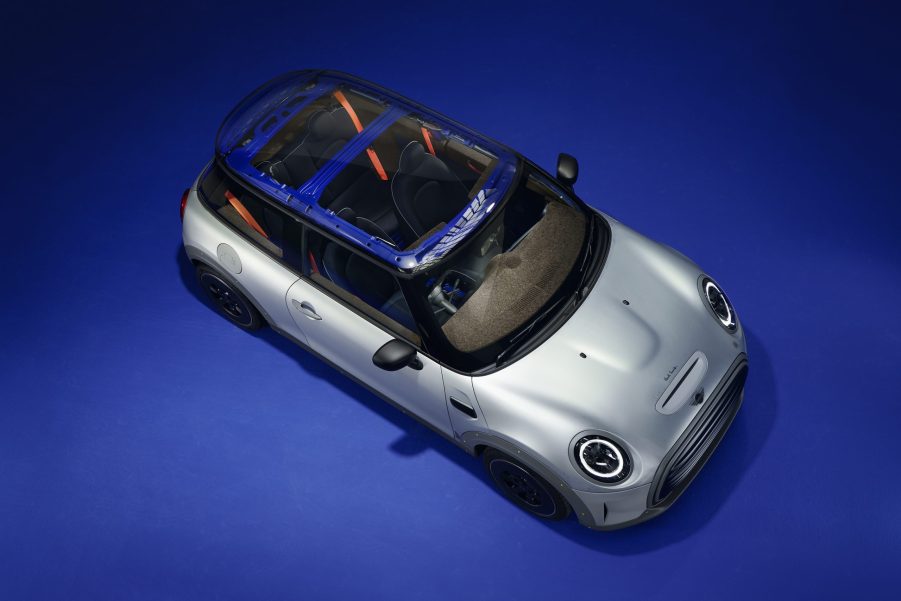
Mini Goes All-in on Sustainability With the Mini Strip
Honey, I shrunk the EV. Rather, the Mini Strip shrunk the EV to show what the BMW-owned brand is capable of in the realm of sustainability. It’s no secret automakers are looking to make that transition to EVs, and recent infrastructure plans from the White House further legitimize that change. Moreover, the whole thing has been handled in a very typically Mini way, with plenty of distinctive style. In order to do that, the brand hired designer Paul Smith to help out.
The Mini Strip looks backwards and forwards

A lot of brands look to cash in on their “heritage” and “provenance” with their designs. I mean, look at the new Aventador-based Lamborghini Countach. It is, for all intents and purposes, an Aventador. However, Lamborghini will sell approximately, well, all of the ones they build. Simply because of that name. That said, few do such a good job of leaning on their history as Mini. The British, German-run brand has long been a “car for the people.”
They’re (comparatively) cheap, small, cars that borrow tremendously from the styling and ethos of the car you see above. Frankly, that’s why the Mini is such a good fit for EV adoption. It’s the people’s car, and the people are going electric. The people want sustainability, and the Mini Strip just showed that the brand can deliver on that.
Heavy use of renewables is key for our future

So, let’s talk a little about the sustainability-leaning Mini Strip concept. First, the outside. Per Mini, swaths of the vehicle are 3D printed from recycled plastic. Moreover, designer Paul Smith has elected to leave the body panels unpainted. Waste not want not, I suppose. The theme of recycling continues around the car, too. Those wheel covers you see, as well as the glass roof, are made from recycled Perspex.
Honestly, the interior is the best part. I’m a sucker for a clean interior. My ADHD means my mind is busy enough without all the visual noise in some newer cars. The seats, for example, are completely recyclable, trimmed in cloth. Mini is keen to point out that the interior is devoid of any leather or chrome. Both are known to cause pollution, and that would kind of defeat the purpose wouldn’t it? Finally, the dash looks like the inside of a wine bottle for a reason. It’s made from recycled cork, though I could do without the iPhone glued to the dash.
Are automakers doing all they can? Are we?

With the introduction of the Mini Strip, the brand has made it clear where its future lies. Mini has joined several other automakers in pledging to go all-electric by 2030. It’s a common target within the industry, and it’s good to see Mini take some steps to help mitigate climate change. Now, we need to focus on infrastructure to support our transition to EVs and continue to try and do more for our planet.


